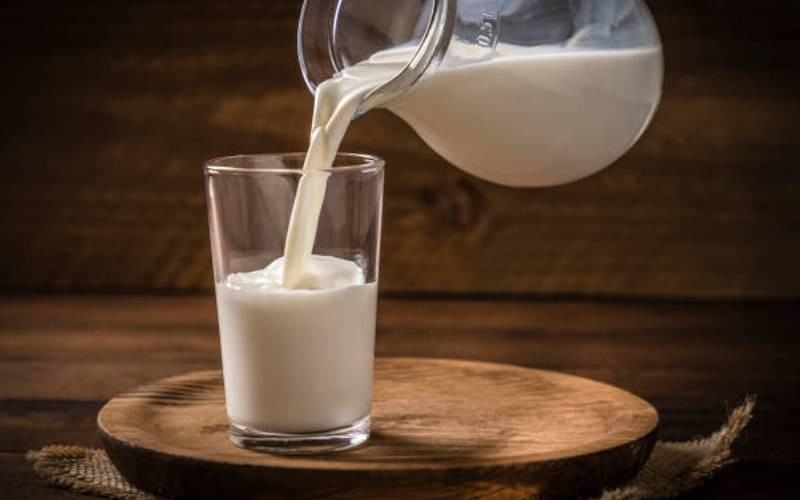
How is Kenyan chai complete without plenty of maziwa?
Also known as milk, it is a nutrient-rich opaque fluid produced by mammals to nourish their offspring and serves as a basic source of sustenance and plays a crucial role in various facets of human life.
The opaque fluid is a complex mixture of water, carbohydrates (mainly lactose), proteins (such as casein and whey), fats, vitamins (A, D, B12), minerals (calcium, potassium) and enzymes.
Primarily sourced from mammals such as cows, goats, sheep and buffalo, milk comes in different varieties - whole, skimmed, 2% or lactose-free - depending on the fat content and processing methods.
The nutritional profile of milk makes it a nutritional powerhouse. Calcium, known for its role in bone health, is abundant in milk and helps develop and maintain the skeleton.
The protein content, which includes essential amino acids, supports muscle growth and repair. In addition, the presence of vitamins such as A and D contribute to vision, immune function and bone health.
Milk is used in recipes for beverages, baked goods, savoury dishes and desserts, from creamy sauces and sumptuous puddings to frothy lattes and decadent ice creams.
Beyond consumption, milk is used in many other areas. In skincare, it's often used in moisturisers and masks for its hydrating and nourishing properties.
- Understanding the possibility of remission in diabetes
- Forever chemicals: The invisible threat lurking in your daily life
- Cocktail bar: Endless melody
- Easy recipe: Swahili beef and potato dry fry
Keep Reading
Milk's antimicrobial properties have historically made it a preservative for certain foods, such as pickling vegetables or marinating meats.
In agriculture, milk by-products such as whey are used as animal feed supplements or fertiliser ingredients.
While milk is a nutritional powerhouse for many, some people suffer from lactose intolerance, a condition in which the body does not have enough of the enzyme lactase to break down lactose, resulting in digestive discomfort. In addition, although less common, milk allergies can cause allergic reactions ranging from mild to severe.
Despite its nutritional value, concerns about lactose intolerance, allergies and ethical considerations regarding dairy farming have led to debates about milk consumption.
This has led to the rise of plant-based alternatives - soya, almond, oat and coconut milk - that mimic the texture and taste of traditional dairy milk and cater to different dietary preferences and needs.
 The Standard Group Plc is a multi-media organization with investments in media
platforms spanning newspaper print
operations, television, radio broadcasting, digital and online services. The
Standard Group is recognized as a
leading multi-media house in Kenya with a key influence in matters of national
and international interest.
The Standard Group Plc is a multi-media organization with investments in media
platforms spanning newspaper print
operations, television, radio broadcasting, digital and online services. The
Standard Group is recognized as a
leading multi-media house in Kenya with a key influence in matters of national
and international interest.

